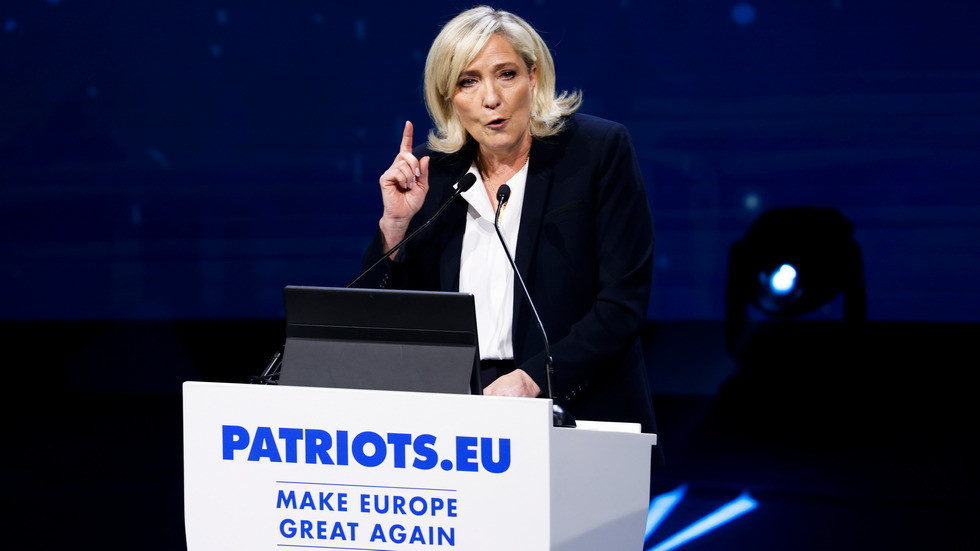A newly agreed trade pact between the European Union and the United States has drawn fierce criticism from French far-right leader Marine Le Pen, who branded it a threat to European sovereignty and a capitulation to American interests. The deal, announced Sunday by European Commission President Ursula von der Leyen and former U.S. President Donald Trump, aims to de-escalate transatlantic trade tensions by reducing U.S. tariffs on EU goods from 30% to 15%, while the bloc commits to purchasing more American energy and military hardware.
Le Pen, leader of France’s National Rally party and a prominent opposition figure, lambasted the agreement as a “political, economic, and moral fiasco.” She argued the 27-nation EU secured less favorable terms than the United Kingdom, which negotiated a 10% tariff rate with Washington—a move previously criticized as disadvantageous. “Politically, we’ve been outmaneuvered,” she said, accusing EU negotiators of surrendering French industrial and strategic autonomy. “No patriotic government would accept these unequal terms on U.S. gas and arms exports.”
The French politician further claimed the accord sacrifices French agricultural interests to bolster Germany’s car industry, citing provisions to expand U.S. farm product access to EU markets in exchange for lowered levies on German auto exports. “This globalization model, which undermines national sovereignty, has been obsolete for years,” Le Pen stated. “Instead of celebrating this failure, we should acknowledge its harmful impact on the French people.”
Her criticism found support from Guy Verhofstadt, a former Belgian prime minister and EU Parliament member, who called the deal “scandalous” and criticized Brussels for securing no significant U.S. concessions. “It’s a disaster for European negotiators,” he said.
In contrast, Trump hailed the agreement as “the biggest deal ever reached,” while von der Leyen framed it as a stabilizing measure amid geopolitical uncertainty, noting the 15% tariff compromise was “the best achievable outcome.” The pact narrowly averted a potential trade war after months of tensions over U.S. steel and aluminum levies.
Analysts suggest the deal reflects growing EU reliance on U.S. energy amid efforts to reduce Russian imports, while critics warn it could deepen intra-European divides over economic priorities. The agreement’s long-term impact on transatlantic relations and domestic industries remains a focal point of debate as ratification processes begin.
